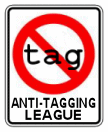Laissez Faire is Less Than Fair
 There are some positive things about deregulated markets. They're capable of producing higher profits and more efficiently propagating technological improvements. Free marketers would argue that open markets create more jobs and lower prices and they wouldn't be completely wrong. They'd argue that a self-regulating marketplace is a much more efficient and correct arbiter of market needs and balances. But, free markets are also volatile things where more benefits flow to business rather than the other way around - not withstanding business lobbyists' attempts to spin poor customer service and higher prices as a benefit to consumers.
There are some positive things about deregulated markets. They're capable of producing higher profits and more efficiently propagating technological improvements. Free marketers would argue that open markets create more jobs and lower prices and they wouldn't be completely wrong. They'd argue that a self-regulating marketplace is a much more efficient and correct arbiter of market needs and balances. But, free markets are also volatile things where more benefits flow to business rather than the other way around - not withstanding business lobbyists' attempts to spin poor customer service and higher prices as a benefit to consumers.Deregulation frequently causes unintended blow back too. Unscrupulous businesses quickly find ways to game the system and without someone looking over their shoulder, they often spin off in completely unexpected - and frequently anti-consumer - directions. For example, banks were once places where you could talk to actual human beings and get help solving problems. In the old days, you knew exactly what fees were and how they would apply them to your account. If you needed to call them, you could do it without voice mail systems to nowhere and sometimes they even gave you a toaster for your patronage. Today? Nada.
And let's not even get started with deregulated telephone systems.
Consumer Benefits...Bah Humbug
There are many dubious examples of deregulation "benefits". Our deregulated airlines can barely get you from point A to point B with predictability. Along the way, they lose your baggage and charge for everything short of the very air you breathe. The flight crews are grumpy, the airplanes are filthy, and a seat that doesn't fold anyone under 5' into a human road map are non-existent. Deregulation introduced artificially low prices as airlines unwisely flew 747s in direct competition to cars burning relatively cheap gas. Those economic pressures drove nearly every airline into bankruptcy at least once. While personal bankruptcy became more legally difficult, the opposite became true for businesses. Today, we have fewer major airlines than before deregulation, their operations are chaotic, and they've turned once-pleasant airline travel into a loathsome experience worthy of Greyhound service between Detroit and Hoboken.
However, there's a case to be made for regulation with a little "r" and as little of it as is appropriate. But sometimes, poorly deregulated companies do incredibly dishonest things. Take compUSA's handling of a customer named Terry Heaton.
Left Holding the Empty Box
Heaton bought a camera during a compUSA liquidation sale. When he got his camera home, he found his "camera" was actually a $269 empty camera box. He went back to the store and quite reasonably asked for a camera or his money back. The store manager told him "all sales are final", refused. They said he should have checked the box before leaving the store. While that may be legally true, it's a poor way to treat anyone - customer or fellow human being. Would you require a post-operative ex-ray to prove your surgeon removed your appendix as proof he actually had? "Sorry, you didn't check and you already left the hospital, I guess you're out of luck."
After the store's refusal, Heaton went to compUSA CEO, Roman Ross. Ross essentially replied "piss up a rope you inconvenient customer". It's responses like his that caused the shuttered stores and attendant liquidation sales to begin with.
Greed is Good...for Business
Retail is largely regulated by toothless consumer protection laws and have deep pockets to outlast occasional challenges to unfair and unscrupulous business practices. Heaton has pledged to badmouth compUSA at every opportunity in retaliation. I wish him luck, but he's fighting an uphill battle that will cost him considerably more than $269 if he follows through. I'd not be the least bit surprised if he never sees camera or money again and compUSA might conceivably sue him for harassment.
Conservatives frequently bemoan onerous regulation as an unnecessary intrusion into the workings of capitalism. On the surface that seems plausible and I'd believe the government should as little regulation as necessary, but only if companies and industries adequately regulate themselves. If they don't I say regulate them to within an inch of their existence. But because administrations like the current one often allow lobbyists to write regulatory law, you can bet that any regulations that do come down will be, at best weak, and at worst, will benefit business. This applies equally to large and small business and comes at the expense of consumers who want what they paid for and some reasonable recourse if they don't get it.
Even though I try to be a caveat emptor kind of consumer, I've gotten my share of empty boxes too. The hard-earned money fiscal conservatives promise will trickle back to me in the form of lower taxes and prices is inevitably offset by corporations that sell empty boxes whenever they can get away with it. You can bet that as long as the CEO and his cabal get their Wolfowitz-style "performance" bonuses, consumer protection will be the farthest thing from their minds and consumers will be left holding the empty box.
Unfortunately, capitalism is an economic model designed around greed and without appropriate regulation, screwees will be tasked with rewarding the screwers.
It seems laissez faire capitalism brings a "less is fair" result for consumers.
A Special Omnipotent Note
Excuse the short interruption in my postings. Evil bots from Larry Page and Sergey Brin's rapidly growing Empire of Googlevania classified me as a spam blog and locked me out of my account. Greatly offended and inconvenienced by my classification as a spam blog, I've made a decision about something I've been considering for quite some time.
I'll be moving the blog as soon as I can get the time to set up accounts and work out new templates. I will, of course, keep all of you posted.
Fight the good fight against the Evil Empire...I mean Google, not Bush.
Oh, what the hell, fight Bush too.
Truth Told by Omnipotent Poobah, Tuesday, June 05, 2007







